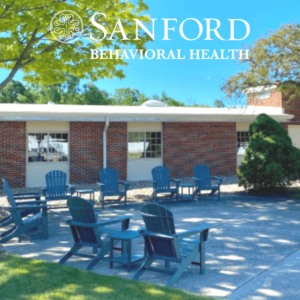10 Family Communication Questions

If you have a loved one working to recover from addiction, you may face challenges in multiple areas. From broad communication to daily responsibilities, all facets of life can change when loved ones transition from actively using an addictive substance to a sober lifestyle. Know that you are not alone in this crucial time and that professional support is available to your family.
The family program at Sanford Behavioral Health in Greater Grand Rapids, MI, is free and available to all family members and loved ones of patients in our recovery programs. Call us at 616.202.3326 or reach out online to learn more about these transformative, accessible telehealth services. During sessions, we explore topics like the impact of addiction on loved ones, family communication questions, and more.
How Can I Connect with a Family Member Receiving Substance Use Treatment?
Connecting with a family member in recovery from drug or alcohol use can be challenging. Often, family members wonder how best to support their loved one’s life now that the latter has gained new tools for coping and self-care. They may also wonder how to advocate for their needs and deal with the inevitable challenges in early recovery. Family therapy can be a great place to work toward clarity in these areas.
At Sanford Behavioral Health, as in many treatment programs, our family offerings start with education. Addiction, after all, is a chronic condition, so learning about its unique features and treatment methodology can be a great place to start. In Sanford Behavioral Health’s four-part series, participants learn how addiction becomes a family disease and what the addictive disease process looks like. Later, they address what to expect from post-acute withdrawal syndrome (PAWS) and other aspects of early recovery. Education culminates with skill-building for effective communication among family members.
Following the initial informative sessions, which Sanford Behavioral Health provides via telehealth to increase access, family members can access ongoing support groups. These groups include family members of multiple patients in recovery. This allows members to network and enjoy solidarity with peers. In group therapy, participants can share successes and explore challenges in a supportive, staff-mediated community.
What Are 10 Family Communication Questions?
In working with families of those in addiction recovery, counselors or facilitators may employ exercises, games, or direct questions to help participants learn, grow, and repair relationships. Here are just 10 example questions to give you a sense of the work that may be covered in family therapy:
- Does everyone feel safe and have permission to share anything they need to? How can we create greater safety if there is information you would like to share but don’t feel you can? What questions need to be asked, or what permissions should be granted?
- Share one of your favorite memories of time spent with the family. What made this experience memorable, fun, meaningful, or normalizing to you?
- Describe one area you believe the family could work on to function more smoothly and supportively.
- Have you taken actions to address your concerns in the past? If you took steps, what happened as a result, and did those results resolve the issue?
- What role or roles do you primarily play in the family? Are there any ways in which you’d like this to shift?
- Describe the effect your family member’s substance use has on you.
- Can you identify codependent behaviors within the family where members enable one another’s self-destructive tendencies? How can we shift our behaviors to increase healthy independence and mutual support?
- Share your goals or dreams for the future. What support do you request from your family to pursue these goals or objectives?
- What do you hope to gain from treatment, as an individual and as a family?
- As a family member, what are you willing to contribute to the shared process of change?
Learn More About Communication Skills for Family Therapy at Sanford Behavioral Health
If your loved one is on the road to recovery from substance use, remember that no matter how difficult the journey is, you are not alone. Simply committing to strive for sobriety or support a loved one by doing so is a commendable step. Our team is available to answer any of your family communication questions and how a family program can help your family through challenging times.
Contact Sanford Behavioral Health at 616.202.3326 or send us a message online for more information on our effective resources for families of those in recovery.


